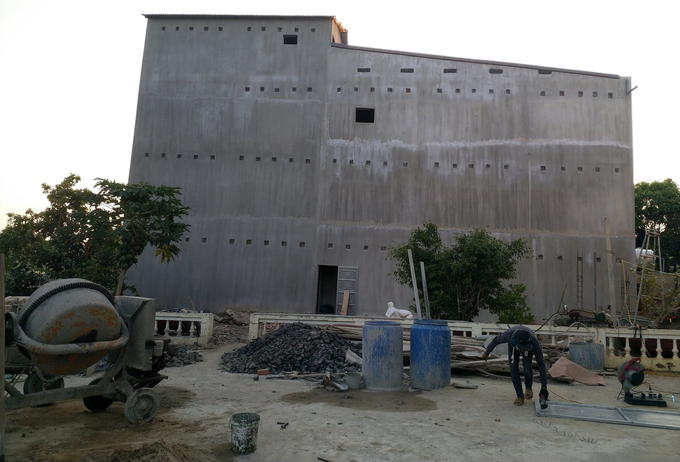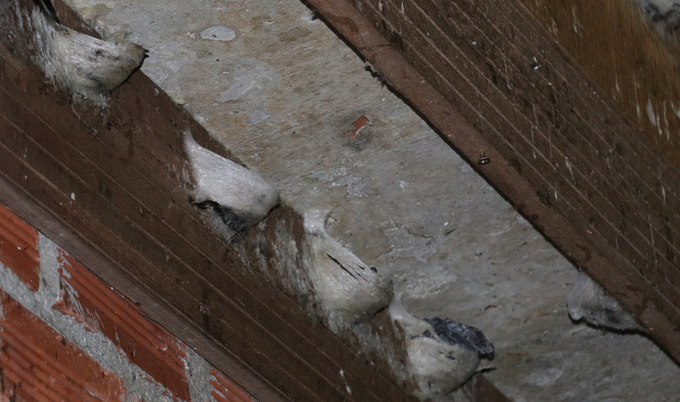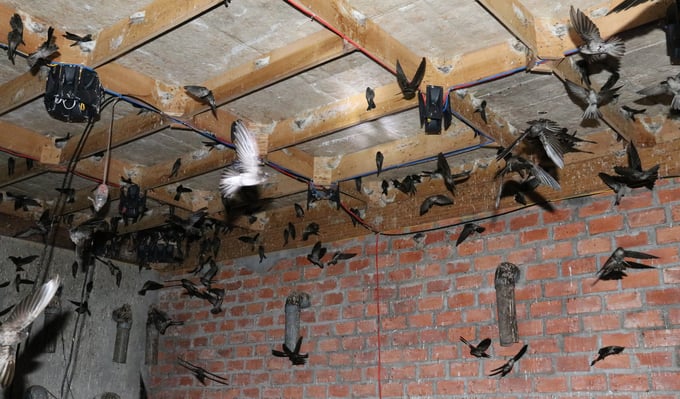May 30, 2025 | 15:41 GMT +7
May 30, 2025 | 15:41 GMT +7
Hotline: 0913.378.918
May 30, 2025 | 15:41 GMT +7
Hotline: 0913.378.918
Recognizing the potential of the swiftlet bird's nest industry, local authorities and regulatory agencies are eager to foster favorable conditions for organizations and individuals operating in this industry. However, Dak Lak's swiftlet nest cultivation encounters several obstacles.
Mr. Tran An Thinh, Director of DAKNET Swiftlet Bird's Nest Co., stated that Dak Lak has great potential for swiftlet bird's nest cultivation due to its favorable climate and pure air, which results in a higher nest quality than other regions. Nonetheless, Dak Lak's industry is more than ten years behind that of other nations, resulting in inferior quality and cost competitiveness.
In addition, the local population in Dak Lak engages in swiftlet nest cultivation without appropriate technical training programs. Therefore, future expansion of the industry in terms of scope without corresponding technical knowledge could result in quality issues and impede exports.
"Without technical knowledge, it is simple for colonies to become contaminated. There is currently no standard method of swiftlet cultivation in Vietnam. Mr. Thinh stated that instructing students in the swiftlet farming industry should be a top priority for the relevant authorities.

Currently, Dak Lak has not planned the bird's nest farming area, making management difficult. Photo: Quang Yen.
The swiftlet bird's nest industry has been expanding for quite some time, but there is a dearth of swiftlet agricultural specialists. Farmers predominantly pass on their knowledge from one generation to the next, and the local population lacks the necessary technical skills, resulting in contaminated nests. This is a premium market with substantial growth potential and substantial profitability. Mr. Thinh explained that the value of swiftlet colonies will increase if the process is carried out properly.
In addition, in Dak Lak, some households do not conduct comprehensive research on the climate, ecological region, and behavior of swiftlet birds, outside of the initial economically viable facilities. As a consequence, when the birds have completed constructing their nests, they either do not return or perish due to changing weather conditions. Additionally, many swiftlet avian farms violate regulations.
Specifically, state administration in this area has not been sufficiently regulated. Environmental protection, veterinary care, food safety, compliance with the use of sound-emitting devices to attract swiftlet birds, and compliance with the Animal Husbandry Law have not been inspected by regulatory agencies.
The construction of swiftlet bird houses and the expansion of swiftlet agricultural housing have not been exhaustively inspected and rigorously regulated. The province has not authorized a regional plan for swiftlet bird husbandry, so local authorities are unable to issue permits for households and facilities to operate in this industry; as a result, they all operate ad hoc.
In addition, there are no specific guidelines regarding the conditions for constructing swiftlet farms, agricultural procedures, disease prevention, or farm structure. Consequently, regulatory agencies confront challenges and confusion when addressing violations.
The market for the purchase, sale, and exchange of swiftlet bird's nest products is unstable. There are few investments in deep processing to diversify and enhance the economic value of products. The primary products are exported in their unprocessed state, which reduces their economic value.
Nest farming of swiftlets in residential areas disrupts urban planning and poses risks of pollution and avian disease outbreaks, in addition to negatively impacting the lives of local residents. According to Mr. Vu Duc Con, Deputy Director of the Department of Agriculture and Rural Development of Dak Lak Province, the swiftlet bird's nest agricultural industry in the region encounters a number of obstacles. A significant fraction of swiftlet bird's nest agricultural facilities have developed spontaneously and lack strategic development direction, with the exception of enterprises and facilities that have participated in supply chains within and outside the province. It remains difficult to manage and regulate the quantity of swiftlet birds raised and the product output.

Because there are no specific standards, bird's nest farming in Dak Lak still faces many difficulties. Photo: Quang Yen.
The Department of Agriculture and Rural Development has advised the People's Committee of Dak Lak Province to direct state administration efforts regarding the development of swiftlet nest cultivation in the province. However, for many years, only a few facilities that have declared swiftlet bird nests have implemented management efforts. Facilities that have not declared their operations have complicated management.
"The federal government has not yet issued specific regulations regarding the standard for swiftlet bird houses, farming procedures, and disease prevention that are adapted to various geographical regions and developmental phases. This further complicates the challenges of local management, as Mr. Con explained.

The management and control of bird's nest groups in Dak Lak still have many difficulties. Photo: Quang Yen.
In certain regions of the province, swiftlet birds are being hunted and captured for non-agricultural purposes, such as release. This activity has the potential to reduce the number of reproducing swiftlet birds and the natural population, impacting biodiversity, depleting natural resources, and causing significant economic losses, as stated by Mr. Con.
Translated by Linh Linh

(VAN) Vaccinating juvenile pangasius helps reduce disease, antibiotic use, and farming costs, increasing profits for export-oriented farmers in An Giang.

(VAN) Due to a limited supply of workforce and competitive recruitment requirements, businesses struggle to retain talented veterinary human resources.

(VAN) WOAH’s guidance aims to mitigate disease risks through a One Health approach that balances economic, conservation, and public health interests.

(VAN) Ms. Nguyen Thi Dung, Deputy Director of Ngoc Hoang Cooperative, shared about the journey of bringing dragon fruit to Europe, achieving annual revenues in the billions of VND.

(VAN) Bamboo products from Thang Tho Bamboo Cooperative have reached many countries around the world, while also creating jobs for local workers.

(VAN) The Management Board of Con Dao National Park reported that a green sea turtle, tagged in the Philippines, has traveled thousands of kilometers to lay 84 eggs on Bay Canh Islet.

(VAN) Green technology is paving a new path for sustainable aquaculture in the Mekong Delta in particular and across the country in general, helping reduce emissions and adapt to climate change.